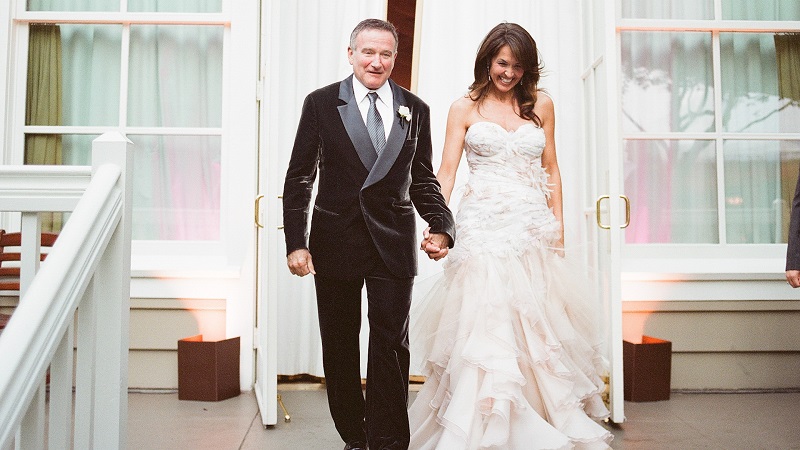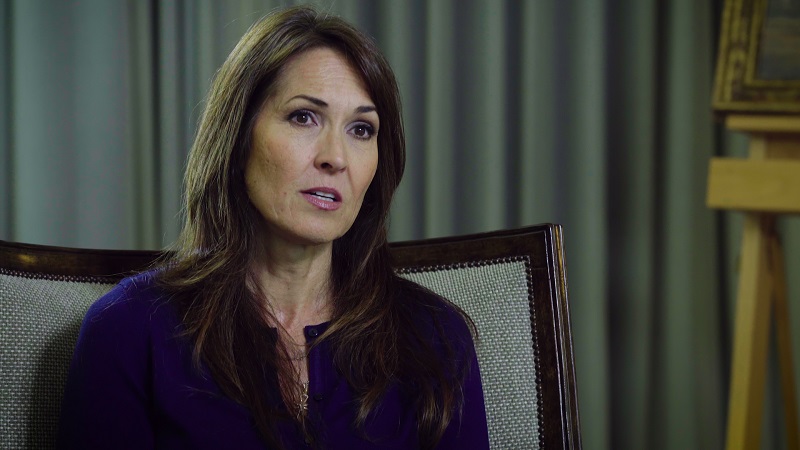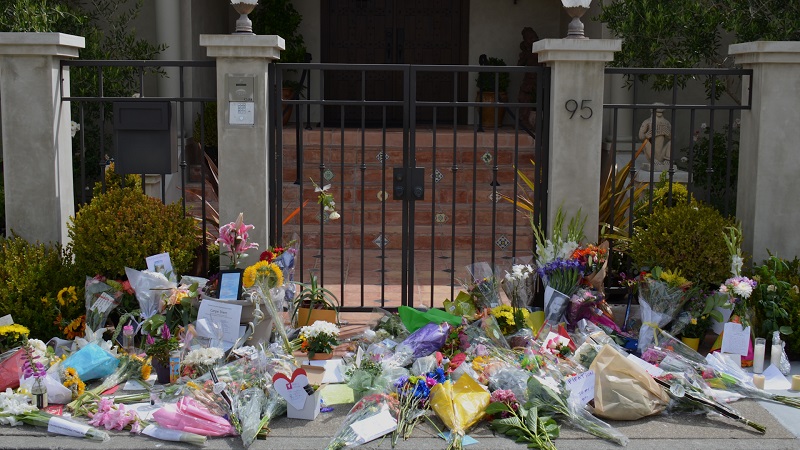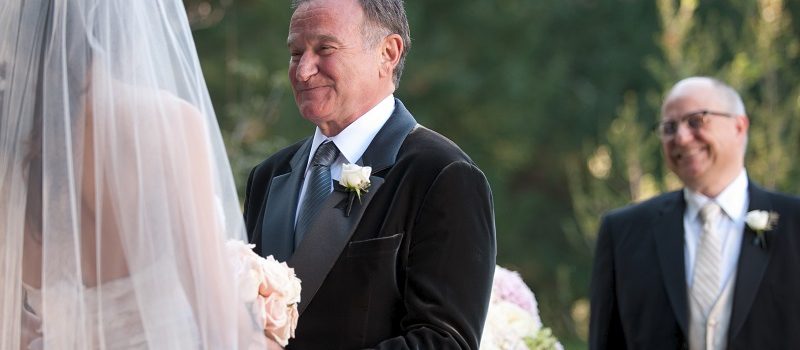When Robin Williams, Oscar-winning actor and stand up comedian, very much a firebrand social commentator is there ever was one, passed away from suicide, fans and the world was shocked. The outwardly affable star was seemingly as jovial as exists, given how that smile seemed piercing. But behind it was a secret and one his widow, Susan Schneider Williams, seeks to share with the world in the documentary that features her late husband’s name and legacy in two short words: Robin’s Wish.

On August 11, 2014, Robin found peace. For Susan, her work was just beginning. He had been feeling “off” for many, many months—slowly losing his grip on his emotions, his mental facilities, and looking in the mirror and not recognizing who was looking back. After his widow received the autopsy, she was finally provided an answer to questions that had plagued the couple for too long.
The legend’s brain was under attack and turns out that even if he knew what he had, there was no cure and death was a certainty. Also confirmed was why Robin was increasingly suffering from paranoid delusions, hallucinations, morbid depression, and complicating everything was the assault on his sleep—which robs one of their ability to sleep through the night and worse still, have physical incarnations of your dreams that can often be violent. Towards the end, the couple had to sleep in separate bedrooms.
Robin Williams truly died from Lewy Body Dementia which finds many of its victims’ stories concluding the same way as the Oscar winner.
Robin’s Wish simultaneously celebrates the vibrant life that was Williams’ journey and shines a much-needed spotlight on a disease that few know about. The comedian knew he was suffering from something that was slowly eroding his faculties, but test after test revealed nothing that would answer for his mental state. Yes, he learned he had Parkinson’s at this time, but as Susan relays in the documentary, he even asked his doctor if he had Alzheimer’s or dimension. The doctors said no. Lewy is often misdiagnosed, leaving those who suffer under its cruel haze flailing miserably without answers to questions that seem to grow exponentially with the passing days.
The Williams’ tried everything. As Susan says, “Robin was a warrior.” This is a guy who beat addiction, depression and had gone into battle zones repeatedly in Iraq and Afghanistan to raise the spirits of our troops, even visiting them in the hospital after catastrophic injuries. Those interviews with an Admiral and a General only further saddens. How many soldiers did Robin uplift and who will be there for those heroes now in the same manner?

Adding layers to the intimacy that filmmaker Tylor Norwood achieved is the insight offered by friends, professional colleagues, and his Marin County neighbors. The latter solely saw him as a regular guy who often came to their parties and exchanged more than simple pleasantries while out walking his beloved Pug. All of these people share something in common, their lives were all touched immeasurably by the late actor. His legacy is cemented with Robin’s Wish and most importantly, still living and breathing as his work touches countless souls across the world via home video and other formats. He also is remembered through the awareness that Susan is raising so that his death is not only not in vain, but can ease the suffering of the millions who suffer from Lewy’s lethal grasp.
The impact of his loss is immediate, palpable, and tragic—yet one is left with a sense of hope from his wife’s crusade to raise awareness for the disease and funds for its cure. The thing is, if Williams knew what he had, it would have explained so much that was fiercely frustrating him until the bitter end. One is reminded of the work that Amy Yasbeck has done since her husband’s aortic dissection was misdiagnosed and he perished. There are now the “Ritter’s Rules” that are in every hospital in the world that has saved countless lives.

His legend, entertainment business-wise, only grows as each subsequent generation discovers his work across the platforms of stand-up, television, and film. That aspect of his legacy is enhanced by the commentary of showbiz friends, big guns such as Shawn Levy (who directed Williams in the Night at the Museum movies) and David E. Kelley (who wrote, directed and produced The Crazy Ones, the television series), as well as comics who shared the stage with him across the decades (Rick Overton, Johnny Steele).
Levy knew something was up with the actor who was back playing Teddy Roosevelt for the third time. He was still the genius we’ve seen for decades. It just took longer for him to get there and physically, something was off. All symptoms of Lewy Body Dementia. What was so impressive is how there were 200 people on that set and not one soul talked about Williams’ issues making what would prove to be his last film. Levy puts it best when he said it was none of anyone’s business. He’s speaking up now on the film for the same reason Robin’s widow is on a crusade—raising awareness. It’s haunting hearing from local Marin County comics and discovering how the legend had routinely shown up at a local theater on open mic night for years and how suddenly those visits from Williams stopped. It is as if a bright light was not only diminished but emitting a different shade of light before it goes out forever.
From a medical standpoint, filmmakers could not have better experts adding priceless insight into a disease few know anything about. It was a particularly powerful message to hear a neurologist suggest that mental health discussions and treatment would be more effective if neurology was seen as a partner in the process. For ailments such as this one, it is exactly what potentially could have helped Williams better understand what was happening to him. Instead, he was awash in self-doubt and a devastating and ever-degrading constant psychological and physiological assault on reality.

The most powerful of all those featured in Robin’s Wish is hardly a surprise. It is his widow, Susan Schneider Williams. This is a woman on a mission on one hand, and on the other, filmmakers have captured a widow still reeling from the tragic loss of her life partner and best friend. Her potent presence both humanizes a man who was larger than life and conveys the raw truth behind the seismically sad and tragic loss of a national treasure.
Grade: A+

